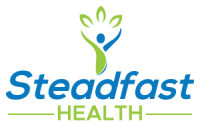“The second most complex organ after the brain is the eyes that are composed of more than 2 million working parts.”
Eyes are the windows for an individual’s soul & one glimpse of them can tell about any health condition. The change in the eyes can reveal health conditions like vision problems, diabetes, stress, etc.
Your eyes speak a lot in many ways:
- If stressed, you face symptoms like an irritating eye twitch.
- Blurry vision can indicate diabetes.
- The appearance of too many eye floaters in the field of vision may be a sign of retinal tear or detachment.
- Yellow eyes suggest jaundice (too much bilirubin).
Top 5 Common Eyes Diseases In India
- Cataract
- Conjunctivitis
- Macular Degeneration
- Glaucoma
- Entropion
These are some eye issues that require the immediate attention of an ophthalmologist. As we all know, prevention is better than cure. Taking care of eyes is our utmost duty. A good vision is sure to help you at home, work or whilst behind the wheels.
Hence, let’s look at some of the ways you can maintain eye health:
Annual Eye Check-Up Is Must
Take up eye health check-ups annually despite feeling that nothing is wrong with your eyes. It is because many eye diseases tend to show no symptoms or any warning signs. Thus, a comprehensive dilated eye exam should be your best step to early detection of any eye issues.
Protect Your Eyes
These are a few of the tips you can follow to keep your eyes healthy by protecting them:
- One of the best ways to protect the eyes from the sun’s UV rays is wearing sunglasses. Every individual must keep a pair of sunglasses in their car, work desk or accessible places to use whenever they are needed.
- Make use of protective eyewear like goggles or safety glasses when indulging in sports activities, home repair or construction work.
Indulge in Safe & Regular Hand Washing
Everybody is taught at home and school that washing hands regularly is a good habit. Unclean hands or germs on the fingers contribute to many vision-related issues as those hands touch the areas around the eyes. Follow a regular habit of washing hands to keep your eyes safe.
Choose eye-healthy foods
A well-balanced diet can not only improve your overall health but also work towards keeping your eyes healthy. Some of the nutrient-dense foods to enhance vision are:
- Choose foods rich in antioxidants, vitamins A, C, D, E, zinc and omega-3 fatty acids.
- Eat foods like carrots, sweet potato and papaya. Nuts like walnuts, pine nuts, hazelnuts and cashews are also good for the eye.
- For non-vegetarians, eating fishes rich in omega-3 fatty acids like salmon or tuna can help improve eye health.
Manage Blood Sugar, Cholesterol & Blood Pressure
High blood pressure, high sugar level & cholesterol hinder the efficiency of the circulatory system. This hindrance can cause a decrease in the blood flow to the eyes resulting in lower vision health. Hence, keep a check on all these health conditions by conducting regular health check-ups.
Manage screen time
All-day long, sitting in front of computers can impact the eyes. Follow some tips shared below:
- The distance between you and your computer screen should be within 20″-24″ of your eye.
- Fix your lighting to lower glare on the computer screen.
- Give your working eyes the required rest by following the 20-20-20 rule that implies looking away every 20 minutes, 20 feet away for 20 seconds. Doing so will help you relax your eyes.
Make sure you make some changes in your daily life using the above tips to maintain optimum eye health.
Healthy Eyes Will Show You A Happier & Healthier World! Take Care Of Them!
The views and opinions expressed, and assumptions & analysis presented in this content piece are those of the author(s) and do not necessarily reflect the official policy or position of any other agency, organization, employer or company. The information, including but not limited to, text, graphics, images and other material contained on this website are for informational purposes only. The purpose of this website is to promote broad consumer understanding and knowledge of various health topics. It is not intended to be a substitute for professional medical advice, diagnosis or treatment. Always seek the advice of your physician or other qualified health care provider with any questions you may have regarding a medical condition or treatment and before undertaking a new health care regimen, and never disregard professional medical advice or delay in seeking it because of something you have read on this website.




